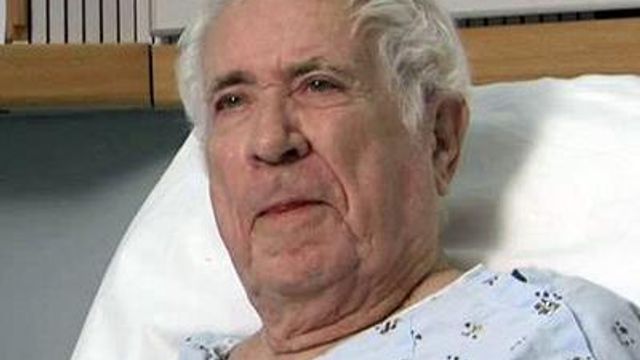First Health Moore Regional focuses on stroke care
If a stroke is the result of a blocked artery to the brain, the clot busting drug tissue plasminogen activator (tPA) must be delivered within three hours of the first symptoms to improve chances of survival and recovery.
Posted — Updated“And I fell again and hit my back on the corner of the night stand,” Gregson said.
Gregson’s wife called 911 and paramedics quickly took him to First Health Moore Regional Hospital.
If a stroke is the result of a blocked artery to the brain, the clot-busting drug tissue plasminogen activator (tPA) must be delivered within three hours of the first symptoms to improve chances of survival and recovery.
“In order to deliver that treatment as quickly as possible, the patient has to come to a hospital that's already organized and set up to be able to deliver that kind of care,” Duke neurologist Dr. Larry Goldstein said.
Goldstein led a 10-year survey of stroke prevention and treatment services in North Carolina. He says there are 19 hospitals in the state certified by the joint commission as primary stroke centers.
Moore Regional was certified in April of last year.
Certification means the hospital has met criteria for an around-the-clock stroke protocol and focus on fast evaluation of patients and timely treatment.
“It really is a team effort and it's amazing how much effort it takes to coordinate all the pieces to this puzzle,” Moore Regional emergency medicine specialist Dr. Steven Strobel said.
“We're certainly within an hour of hitting the door, from door to needle time to get the tPA at this point,” Solomon said.
Still, 58 percent of people in the state don't live in a county with a certified stroke center.
Gregson waited too long to call EMS after his first stroke symptoms, so he didn't qualify for clot-busting treatment. Despite that, he is recovering well.
Goldstein’s research is being used by state planners as a road map for improving stroke care in North Carolina, partly by linking community hospitals with their nearest primary stroke centers.
• Credits
Copyright 2024 by Capitol Broadcasting Company. All rights reserved. This material may not be published, broadcast, rewritten or redistributed.





